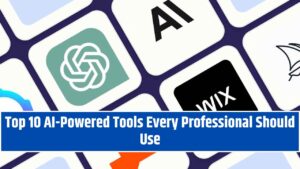The future of work is being rewritten, driven by powerful shifts in technology, globalization, and changing workforce expectations. To stay ahead, professionals need more than just job experience—they need future-ready skills that align with tomorrow’s business demands. Upskilling has become essential, not optional, for anyone looking to secure a thriving career in 2025 and beyond. Whether you’re seeking a promotion, career switch, or simply want to remain competitive, here are ten critical skills that employers will be prioritizing in the year ahead.
1. Data Literacy and Analytics
In a world where 182 zettabytes of data are projected to exist by 2025, those who can interpret and act on this information will be in high demand. Data literacy is no longer the domain of analysts alone. It means being able to understand dashboards, interpret trends, and draw actionable conclusions from raw data. Professionals equipped with this skill help companies make smarter, evidence-backed decisions.
2. Artificial Intelligence and Machine Learning
AI and machine learning are transforming every industry, from logistics to legal. As of 2022, over three-quarters of businesses have explored or implemented AI solutions. Those who can work with AI tools—whether to automate tasks, personalize customer experiences, or uncover insights—will become invaluable team members. These skills are especially powerful in roles that require operational efficiency and innovation.
3. Digital Fluency and Tech Agility
Digital fluency isn’t just about mastering Excel or Zoom. It’s about seamlessly adopting new platforms, collaborating virtually, and integrating digital solutions into workflows. With remote work and hybrid teams becoming the norm, tech-savvy professionals who can adapt to shifting tools and environments will lead the charge.
4. Creativity and Innovation
Organizations are seeking individuals who can think differently, propose unique ideas, and solve problems in novel ways. Creativity combined with an innovation mindset fosters a workplace culture that embraces change and moves beyond “how things have always been done.” It’s a skill that thrives in environments where continuous improvement is encouraged.
5. Emotional Intelligence and Empathy
Being emotionally intelligent means managing your emotions and understanding those of others. In high-stress environments or roles involving collaboration, empathy helps build stronger relationships and smoother communication. Employers prize team members who foster inclusive, supportive workplaces while maintaining professionalism and self-awareness.
6. Adaptability and Resilience
If recent years have shown anything, it’s that the only constant is change. Employers seek professionals who don’t just endure change but embrace it. Adaptability is about quickly pivoting strategies, while resilience is the grit that keeps you moving forward during setbacks. Together, they form a mindset critical for navigating uncertainty and leading during disruption.
7. Critical Thinking and Complex Problem-Solving
In a world where automation handles routine tasks, humans are still essential for solving the complex, unstructured problems machines can’t. Critical thinking involves analyzing situations objectively and making decisions grounded in logic and data. Employers want individuals who can break down problems, explore multiple solutions, and execute the best course of action.
8. Leadership and Influence
Leadership is not limited to management roles. It’s about influencing outcomes, motivating teams, and modeling integrity. Whether you’re leading a project or inspiring change, employers look for self-starters with strong communication skills, team management capabilities, and the ability to get buy-in from colleagues and stakeholders.
9. Cultural Competence and Diversity Awareness
Global teams are now the norm. Cultural competence means being aware of and sensitive to cultural differences, values, and communication styles. When professionals understand how to work across cultures, they help foster inclusivity, reduce misunderstandings, and enhance collaboration. These skills are key to building trust and driving innovation in multicultural teams.
10. Environmental Sustainability Awareness
Sustainability is no longer a fringe concern—it’s a business imperative. Consumers prefer to support companies that share their values, particularly regarding environmental responsibility. Professionals who understand green practices, carbon footprints, and corporate social responsibility (CSR) can help organizations align with both customer values and regulatory trends.
Top Skills Employers Will Value in 2025
| Skill | Why It Matters |
|---|---|
| Data Literacy & Analytics | Informed decisions, trend identification, data-backed strategies |
| AI & Machine Learning | Efficiency, automation, competitive edge |
| Digital Fluency | Tech integration, remote collaboration, productivity |
| Creativity & Innovation | Unique problem-solving, continuous improvement |
| Emotional Intelligence | Team cohesion, conflict resolution, leadership |
| Adaptability & Resilience | Flexibility in uncertainty, sustained performance |
| Critical Thinking | Objective evaluation, evidence-based decisions |
| Leadership & Influence | Motivation, strategic guidance, organizational impact |
| Cultural Competence | Inclusive collaboration, global understanding |
| Sustainability Awareness | Corporate responsibility, brand reputation, eco-consciousness |
Embracing these future-ready skills is key to staying relevant and competitive in a constantly evolving workforce. The professionals who stand out will be those who continuously learn, adapt, and grow.




